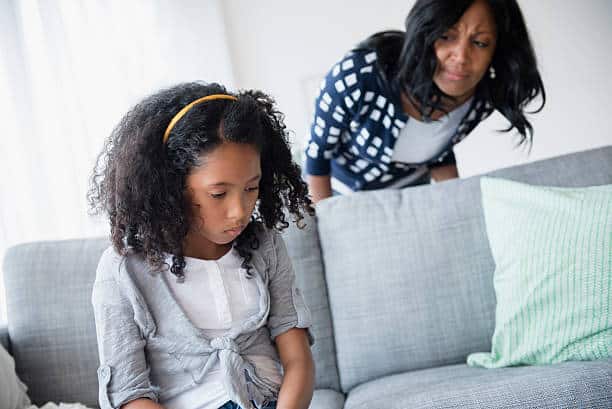
“Sticks and stones may break my bones, but words will never hurt me.”
For generations, parents and teachers repeated this familiar saying to children as a way of encouraging resilience against bullies and harsh words. But according to new research, the phrase is not only misleading—it is dangerously wrong. Words, especially those spoken in childhood by caregivers, can wound the mind as deeply as sticks or stones wound the body.
A new study published August 5 in BMJ Open argues that verbal abuse in childhood is just as damaging to a person’s long-term mental health as physical abuse, and in some cases, even more so.
Words That Leave Scars
The study, led by Professor Mark Bellis of Liverpool John Moores University, tracked more than 20,600 children born in England and Wales from the 1950s onward. The results were startling:
-
Children subjected to verbal abuse had a 64 percent increased risk of low mental well-being as adults.
-
Those who suffered physical abuse faced a 52 percent increased risk.
-
Children who endured both forms of abuse were twice as likely to report poor mental well-being later in life.
Put simply: words can cut as deeply as fists.
“Verbal abuse may not immediately manifest in ways that catch the attention of bystanders, clinicians or others in supporting services with a responsibility for safeguarding children,” Bellis and his team wrote. “However, as suggested here, some impacts may be no less harmful or protracted.”
Unlike a bruise, which fades, the echoes of cruel words often linger for decades.
RELATED: 6 Ways Abuse in Childhood Can Shorten Adult Lives
The Global Picture: Abuse in Numbers
Childhood abuse, unfortunately, remains a widespread issue across the globe. The World Health Organization estimates that one in six children worldwide experiences physical abuse from caregivers. The long-term consequences of such abuse are well-documented: higher rates of depression, anxiety, substance use, violence, and even chronic diseases in adulthood.
But verbal abuse is even more common—and often overlooked. According to the study, one in three children endures verbal abuse, making it nearly twice as prevalent as physical abuse. This abuse can take the form of insults, humiliation, threats, constant criticism, or belittling comments from parents or caregivers.
Far from being harmless, such language constitutes a form of toxic stress that disrupts brain development, shaping how children regulate emotions, process information, and form relationships.

Changing Trends Across Generations
The researchers noted that childhood experiences of abuse have shifted over time. Among those born between 1950 and 1979, about 20 percent reported physical abuse. For children born after 2000, that number dropped to 10 percent, suggesting progress in curbing physical violence against children.
But the reverse is true for verbal abuse:
-
Fewer than 12 percent of children born before 1950 reported experiencing it.
-
Nearly 20 percent of those born in the 2000s did.
As physical violence becomes less socially acceptable, harsh words may be replacing blows as a primary outlet for frustration or discipline. Unfortunately, the research shows that these words can inflict wounds every bit as damaging.
The Long-Term Impact on Mental Well-Being
The study defined “low mental well-being” through a range of indicators: lack of optimism, difficulty making decisions, feelings of uselessness, inability to relax, and lack of close connections with others.
Among the findings:
-
24 percent of children subjected to verbal abuse reported low mental well-being as adults.
-
23 percent of those physically abused reported the same.
-
29 percent of those subjected to both forms of abuse were affected.
-
In comparison, just 16 percent of children with no history of abuse reported low well-being.
Notably, verbal abuse often affected certain aspects of adult life more severely than physical abuse. For example:
-
Physical abuse raised the odds of not feeling close to others by 33 percent
-
Verbal abuse raised those odds by a staggering 90 percent
-
Experiencing both forms of abuse left adults 2.7 times more likely to rarely or never feel close to others.
In other words, words do not just hurt—they isolate, corrode trust, and impair the capacity for healthy relationships.
RELATED: My Childhood Shadowed by Violence
Why Words Hurt So Much
At first glance, it may seem surprising that words, which leave no physical marks, can have such profound consequences. But neuroscience provides an explanation.
When a child hears constant insults or belittling, the brain interprets these experiences as threats, activating stress responses. Over time, chronic exposure to such stress reshapes neural pathways, particularly in areas linked to emotion regulation and social connection. This can result in heightened anxiety, depressive symptoms, and difficulty forming supportive relationships.
Unlike a physical injury, which heals, the mental framework shaped by toxic words can persist throughout life, subtly undermining confidence, resilience, and connection with others.

Shifting the Conversation
For decades, public health campaigns have focused on combating physical child abuse—a necessary and vital mission. But Bellis and his team argue that policymakers, educators, and caregivers must also recognize verbal abuse as a serious public health threat.
“Despite political and public focus on physical violence and abuse of children, results here suggest child verbal abuse may have consequences for mental well-being of a similar magnitude,” the researchers wrote.
This means interventions should not stop at preventing physical harm. They must also address the everyday language adults use with children—how discipline is framed, how frustration is expressed, and how encouragement is withheld.
Moving Forward: What Can Be Done
The study highlights a need for cultural change in how society views language directed at children. Possible steps include:
-
Parent education programs to teach positive discipline strategies.
-
Training for teachers and caregivers to recognize and respond to verbal abuse.
-
Public awareness campaigns to highlight the hidden damage of harmful words.
-
Mental health support for survivors of verbal abuse, acknowledging its seriousness alongside physical and sexual abuse.
As society begins to recognize the profound weight of words, we may finally move beyond the outdated rhyme that trivialized their impact.
Conclusion: Beyond “Sticks and Stones”
The new study provides scientific evidence for something many people already know intuitively: words can hurt, sometimes more deeply and permanently than bruises or broken bones.
For children, words spoken in moments of anger or frustration can shape how they see themselves and the world for decades to come. And unlike childhood bruises, which fade, those invisible scars often remain.
It’s time to retire the old saying once and for all. Sticks and stones may break bones, but words can wound the mind—and those wounds may last a lifetime.









